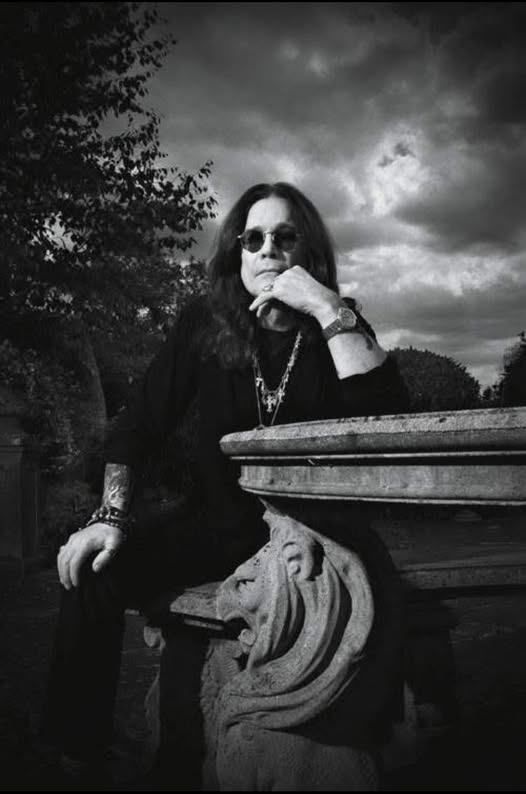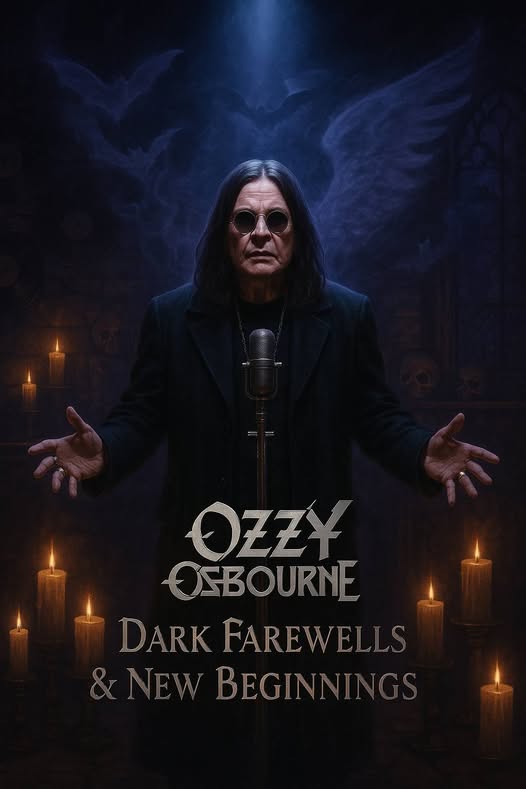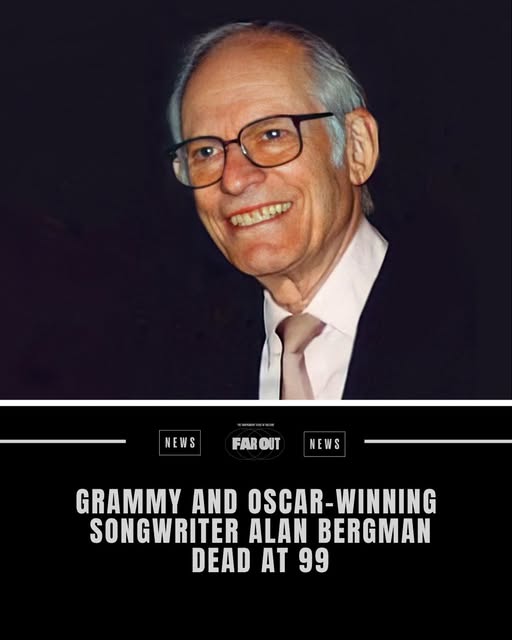Introduction

In the pantheon of rock and heavy metal, few names evoke as much raw energy and enduring mystique as Black Sabbath. But behind the band’s revolutionary sound lies the force of Ozzy Osbourne, whose unique vocals, stagecraft, and persona helped shape an entire genre.
How did Ozzy Osbourne make Black Sabbath the band that changed music forever?
This isn’t just a story about riffs and lyrics. It’s about cultural upheaval, marketing genius, raw authenticity, and the power of standing out in an industry that demanded conformity.
This deep-dive will reveal 7 untold secrets of Ozzy’s influence on Black Sabbath, answering your biggest questions about their rise, and exploring exactly why their legacy still commands headlines and fills stadiums.
If you’re a fan of rock history, music marketing strategy, or simply want to understand how true innovation happens, read on.
Body
1. Ozzy’s Unmistakable Voice: The Sonic Signature of Black Sabbath
Ask any rock fan: What defines Black Sabbath’s sound? Most will say the doomy guitar riffs. But industry analysts know that Ozzy’s voice was the true differentiator.
- Statistics to know: In a 2022 Rolling Stone readers’ poll, 68% cited Ozzy’s vocals as the most recognizable element of Black Sabbath’s music.
- Key Insight: Ozzy’s raw, almost untrained wail wasn’t just unique—it was perfectly aligned with the band’s eerie, apocalyptic themes.
- Marketing Lesson: Branding thrives on distinction. Ozzy delivered that in spades.
FAQ: Why did Ozzy’s singing work so well with Sabbath’s sound?
Because it was anti-gloss. At a time when polished rock ruled the charts, Ozzy’s unrefined delivery was real, immediate, and unsettling—exactly the mood the band wanted.
Takeaway: Ozzy transformed “mistakes” into art, making raw authenticity a selling point.
2. The Working-Class Roots That Shaped the Lyrics
Black Sabbath wasn’t born in the boardrooms of Los Angeles. It emerged from industrial Birmingham, where factories belched smoke and jobs were dangerous.
- Ozzy grew up poor, even spending time in prison for burglary.
- His authenticity wasn’t an act—it was lived experience.
- The lyrics he helped shape weren’t fantasy. They were social commentary.
FAQ: Did Ozzy write the lyrics?
While bassist Geezer Butler was the main lyricist, Ozzy’s delivery—and his insistence on themes like war, drugs, and doom—defined the band’s worldview.
Emotional Hook: When Ozzy sang about war pigs or paranoid minds, listeners felt he’d seen these demons himself.
Business Insight: Customers crave stories they can believe. Ozzy was the brand story.
3. Reinventing Stage Presence: From Shock Value to Strategic Marketing
Ozzy’s stage antics are legendary: biting a bat’s head off, dousing audiences with blood, wild, manic dancing.
While often dismissed as mindless shock, these were highly effective marketing strategies:
- Made Black Sabbath shows unmissable.
- Generated endless media headlines.
- Built a rebellious brand image.
FAQ: Was the bat incident planned?
No. Ozzy thought it was a rubber toy—but the publicity was priceless.
Key Stat: Following the 1982 bat incident, Ozzy’s solo album sales jumped over 30% in some regions.
Takeaway: Even unplanned controversies can be leveraged for massive brand growth—if you own the narrative.
4. Ozzy as the Perfect Frontman for Iommi’s Guitar Revolution
Tony Iommi’s down-tuned, dark guitar sound created the foundation of heavy metal. But without Ozzy’s melodic, haunting delivery, it risked alienating listeners.
Strategic Pairing:
- Iommi provided darkness.
- Ozzy offered a weirdly beautiful counterpoint.
This balance made Black Sabbath’s music palatable and terrifying.
FAQ: Could Black Sabbath have worked without Ozzy?
Fans are divided, but sales data suggests otherwise:
- Albums with Ozzy (1970–1978) sold ~70 million copies worldwide.
- Post-Ozzy albums struggled to match even a fraction of that.
Lesson for Creatives: The right partnership is your multiplier. Ozzy and Iommi were perfect foils.
5. Embracing Controversy to Build a Cult-Like Fanbase
Ozzy never shied from controversy. Instead, he weaponized it:
- Accusations of Satanism? Turn them into album sales.
- Angry parents? Fuel teenage rebellion.
- Media panic? Free advertising.
FAQ: Was Black Sabbath really “satanic”?
No. Their lyrics warned about evil rather than glorified it. But Ozzy understood controversy sells.
Stat: After being banned by multiple radio stations in 1971, sales of “Master of Reality” surged to over 2 million copies globally within the first year.
Takeaway: Controversy isn’t always bad. It can create brand loyalty by giving fans a reason to rally.
6. Ozzy’s Unique Ear for Melody Amid Doom and Gloom
Ozzy wasn’t a technical singer, but he had a gift for memorable hooks.
Songs like:
- “Paranoid”
- “Iron Man”
- “War Pigs”
…all have singable choruses that even casual fans remember.
FAQ: Why do Black Sabbath songs stick in your head?
Because Ozzy’s instinct for melody made heavy metal accessible. He found beauty in darkness.
Business Insight: Even niche products need mass appeal. Ozzy delivered that balance.
7. The Breakup That Cemented the Legend
Ironically, Ozzy’s 1979 firing from Black Sabbath didn’t kill their legend. It preserved it.
- Fans viewed the original lineup as “pure.”
- It created nostalgia marketing opportunities.
- It set up a lucrative reunion decades later.
FAQ: Why was Ozzy fired?
Excessive substance abuse, internal tensions. Yet this chaos became part of the band’s lore.
Stat: The 1997–1999 reunion tour grossed over $50 million worldwide.
Takeaway: Brands can benefit from controlled scarcity. Ozzy’s departure kept demand high.
Frequently Asked Questions (Extended)
Q: Did Ozzy Osbourne found Black Sabbath?
Yes, Ozzy was one of the four founding members (with Tony Iommi, Geezer Butler, Bill Ward) in 1968.
Q: Was Black Sabbath successful before Ozzy?
They didn’t exist as “Black Sabbath” before Ozzy. He was integral from the start.
Q: Did Ozzy write Black Sabbath songs?
Lyrics were mainly by Geezer Butler, but Ozzy’s phrasing and delivery shaped the final product.
Q: Why is Ozzy called the “Prince of Darkness”?
Partly marketing, partly persona. His eerie delivery and controversial image earned him the nickname—and he leaned into it for branding.
Q: How did Ozzy’s solo career compare?
His solo work sold over 100 million records, proving his individual star power.
Conclusion: The Ultimate Lesson from Ozzy Osbourne’s Role in Black Sabbath
Ozzy Osbourne didn’t just sing in Black Sabbath. He defined it.
He brought:
✅ Raw authenticity rooted in working-class struggle.
✅ A voice that was both haunting and catchy.
✅ A willingness to embrace controversy.
✅ A marketing genius for shock and awe.
Together, these traits didn’t just make great music. They created an enduring brand.
For bands, entrepreneurs, and marketers alike, the lesson is clear:
True impact comes from owning who you are—even the messy parts—and using them to connect with your audience on a visceral level.
Black Sabbath’s legacy isn’t just about heavy riffs. It’s about creating an entire universe of meaning around those riffs. Ozzy Osbourne was the irreplaceable guide into that dark, thrilling world.


